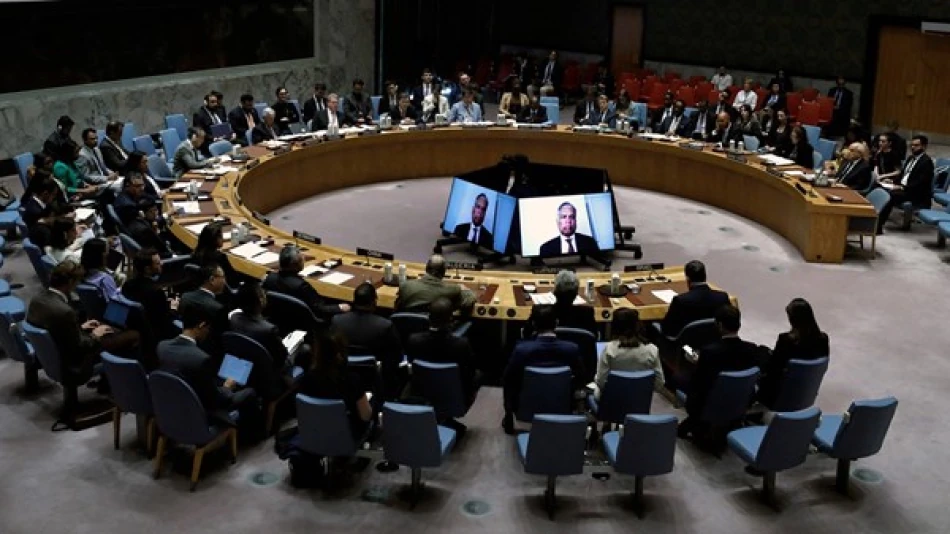
UN Warns of Risks in Israel's Proposed Gaza Occupation Plan
UN Warns of "Another Catastrophe" as Israel Plans Full Control of Gaza
Senior United Nations officials delivered stark warnings to the Security Council that Israel's newly announced plan to assume complete military control over Gaza threatens to unleash "another catastrophe" with devastating regional consequences. The emergency session came after Israel's security cabinet formally approved expanded military operations, drawing sharp international condemnation and raising fears of prolonged occupation.
Security Council Sounds Alarm Over Escalation
Miroslav Jenča, the UN Assistant Secretary-General, painted a grim picture for Security Council members during Sunday's emergency meeting. "If these plans are implemented, they are likely to cause another catastrophe in Gaza, echoing throughout the region and causing more forced displacement, killing and destruction," he warned.
The timing of this announcement signals a potential shift toward long-term military occupation rather than the targeted operations Israel had previously described. This marks a significant escalation that could fundamentally alter the conflict's trajectory and complicate any future diplomatic solutions.
European Powers Unite in Opposition
Slovenia's UN Ambassador Samuel Žbogar, speaking on behalf of the five European nations on the Security Council, delivered a coordinated rebuke that highlighted growing Western concerns about Israel's strategy.
"This decision by the Israeli government will not contribute to ensuring the return of hostages, but will put their lives at further risk," Žbogar stated, directly challenging one of Israel's primary justifications for the operation.
Humanitarian Crisis Deepens
The European statement emphasized that expanded Israeli control would "exacerbate the already catastrophic humanitarian situation in Gaza and expose Palestinian civilian lives to more death and mass displacement." This assessment reflects growing international frustration with the conflict's civilian toll and suggests potential diplomatic consequences for Israel.
Regional Implications and Historical Precedent
Israel's previous occupation of Gaza lasted from 1967 to 2005, when it unilaterally withdrew settlements and military forces. The current plan represents a potential return to direct military administration, raising questions about long-term strategy and exit planning.
Palestinian UN Ambassador Riyad Mansour characterized the move as fundamentally at odds with international consensus, stating that "this escalation by the Israeli government completely contradicts the will of the international community."
Strategic Calculations and Risks
The decision appears to reflect Israeli leadership's assessment that temporary military operations have proven insufficient to achieve stated objectives. However, historical precedent suggests that prolonged occupation often generates sustained resistance and international isolation, potentially undermining long-term security goals.
The unanimous international concern expressed at the Security Council indicates that Israel may face increasing diplomatic pressure, potential sanctions discussions, and reduced international support for its broader security objectives. This could complicate relationships with key allies and impact regional stability calculations across the Middle East.
Most Viewed News

 Layla Al Mansoori
Layla Al Mansoori






